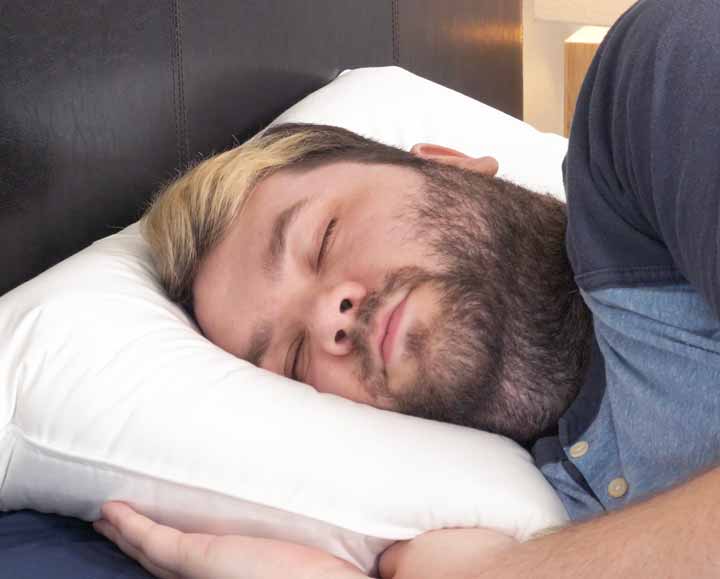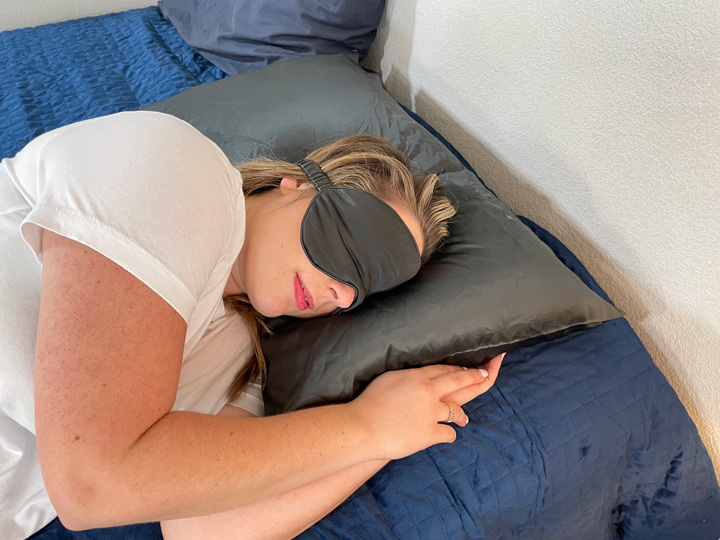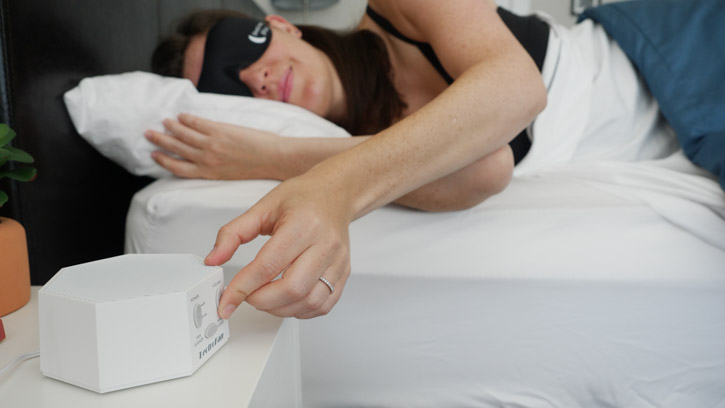Some like sleeping in a cold room with lots of blankets, others in a warm room with a thin sheet. But it turns out that there could be an ideal temperature to promote the best night’s sleep. Helping your body maintain the optimal nighttime temperature may be more important than you think.
So what’s the best temperature to sleep in? Keep reading to find out.
Understanding Sleep
Let’s dive deeper into what makes a good night’s sleep. Here’s how to increase the quality of your sleep so that you wake up feeling fully rested:
Importance of sleep quality
A study by the National Institute of Health suggests that getting good quality sleep during the night improves health, mood and even brain performance. It can also decrease your chances of developing disorders and diseases such as strokes, obesity, heart disease and dementia.

How Does the Body Regulate Temperature?
To understand how the body regulates temperature during the night, you need to know how sleep works. Our body temperature is regulated by circadian control which works on a 24-hour temperature cycle. The body’s core temperature starts to drop two hours before bedtime, and it drops to its lowest temperature when you reach your deepest sleep.
While this may sound dangerous, it’s nothing to worry about. Your body’s core temperature only drops a maximum of 33.8 F during the night. When your body warms up, you move into a lighter stage of sleep and start to wake up.
How Does Temperature Affect Sleep?
The temperature of the room you are sleeping may effect your quality of rest. Let’s take a closer look at the research.
How Does a Warm Room Affect Sleep?
Studies show that sleeping in a warm room decreases the amount of time spent in REM (Rapid Eye Movement) sleep. This phase of the sleep cycle plays important part in your ability to learn new things and remember important details.
How Does a Cool Room Affect Sleep?
When studies were done to test the effects of a cold room on sleep, no negative consequences were found other than in cases of extreme cold. Significantly, there were no effects on he length of time participants spent in REM sleep.
What Is the Best Temperature to Sleep In?
The ideal temperature for sleep differs throughout the different stages of life. Here’s a general guide about the best temperatures to sleep in. Remember, the best temperature to sleep in is the one that feels the best for you. If you feel too hot or too cold, adjust the thermostat or change your bedding.
| Age | Temperature |
| Babies and Young Children | 65-70 F |
| Adults | 60-67 F |
| Elderly | 60-67 F |
How To Maintain the Best Sleep Temperature
There are various ways you can create an environment that’s conducive to sleep.
Creating a Healthy Sleep Environment
Your sleep environment can play a big role in your quality of rest. Ensuring that your room is dark enough helps to regulate your circadian rhythm, which can be achieved with blackout curtains or an eye mask.

Eliminating distracting noises can also help create a healthy sleep environment. If you are exposed to loud noises during the night, try sleeping with a white noise machine on in the background to drown out any loud sounds that could wake you.
Find The Best Mattress and Sleep Accessories
When it comes to falling asleep and staying asleep, comfort is key. Try sleeping on a cooling mattress or in some cooling sheets to regulate your body temperature. These can be particularly useful for those who overheat during the night or deal with night sweats.
Adjusting Room Temperature
Keeping your room at an ideal temperature while you sleep can help you wake up feeling rested. Using air conditioning is one of the easiest ways to control the temperature of your room, but if you don’t have an air conditioner, try using a fan for additional air circulation.

You can also try leaving your door or window open while you sleep; this can also help to regulate the temperature of your room.
Final Thoughts
Some studies suggest that bedroom temperature plays a key role in sleep quality. Some researchers found that it’s best to keep bedroom temperatures between 60 and 67 F, but ultimately, comfortability is key. If you’re shivering at night, adjust the thermostat or add another blanket to your bed.
FAQs
How does temperature affect sleep?
Temperature can affect both the quality of your sleep and the amount of time you spend in different sleep stages. If a room is too warm, you may struggle to reach REM sleep, which means you won’t feel deeply rested.
What temperature is too cold to sleep in?
According to some studies, the ideal temperature to sleep in is 60-67 F. Some researchers believe that sleeping in temperatures above 75 F and below 54 F is disruptive to sleep. That said, you know what’s best for your body and comfort levels. Don’t feel obligated to sleep in a cold room if you’re uncomfortable.

